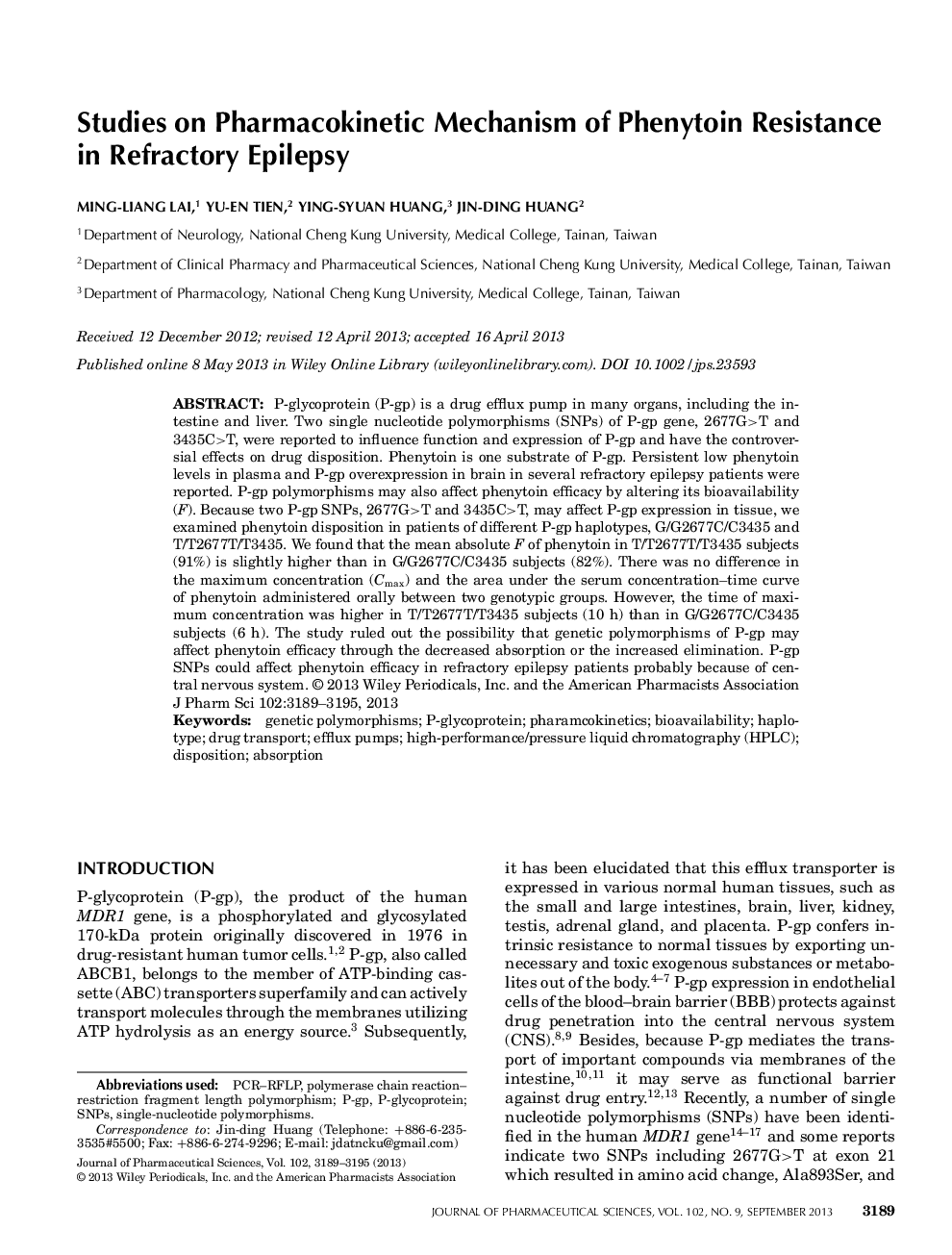| Article ID | Journal | Published Year | Pages | File Type |
|---|---|---|---|---|
| 2484833 | Journal of Pharmaceutical Sciences | 2013 | 7 Pages |
P-glycoprotein (P-gp) is a drug efflux pump in many organs, including the intestine and liver. Two single nucleotide polymorphisms (SNPs) of P‐gp gene, 2677G>T and 3435C>T, were reported to influence function and expression of P‐gp and have the controversial effects on drug disposition. Phenytoin is one substrate of P-gp. Persistent low phenytoin levels in plasma and P-gp overexpression in brain in several refractory epilepsy patients were reported. P‐gp polymorphisms may also affect phenytoin efficacy by altering its bioavailability (F). Because two P‐gp SNPs, 2677G>T and 3435C>T, may affect P‐gp expression in tissue, we examined phenytoin disposition in patients of different P-gp haplotypes, G/G2677C/C3435 and T/T2677T/T3435. We found that the mean absolute F of phenytoin in T/T2677T/T3435 subjects (91%) is slightly higher than in G/G2677C/C3435 subjects (82%). There was no difference in the maximum concentration (Cmax) and the area under the serum concentration–time curve of phenytoin administered orally between two genotypic groups. However, the time of maximum concentration was higher in T/T2677T/T3435 subjects (10 h) than in G/G2677C/C3435 subjects (6 h). The study ruled out the possibility that genetic polymorphisms of P-gp may affect phenytoin efficacy through the decreased absorption or the increased elimination. P-gp SNPs could affect phenytoin efficacy in refractory epilepsy patients probably because of central nervous system.
